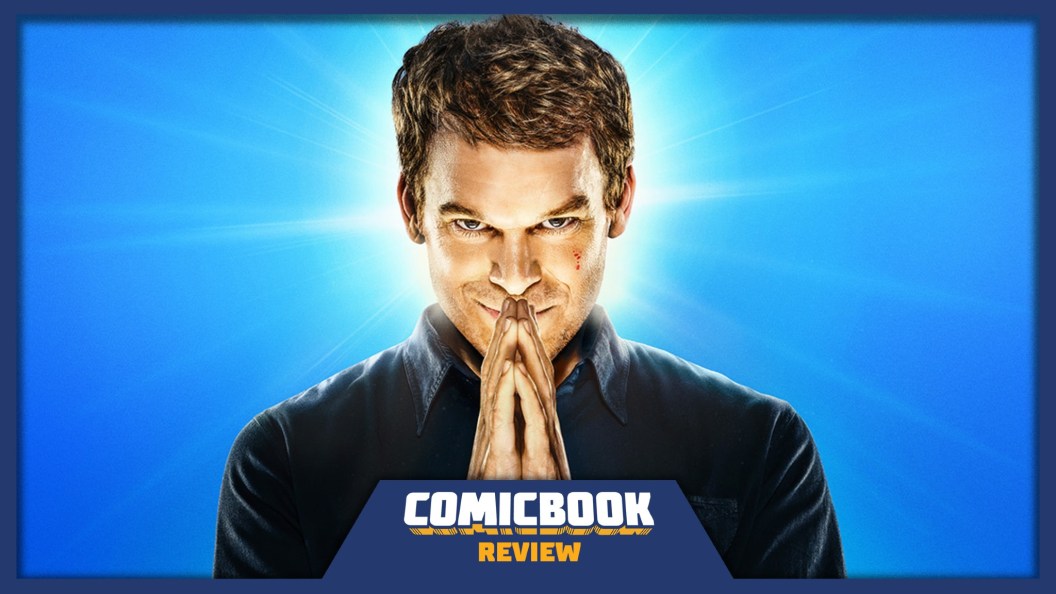
Dexter Morgan is back from the dead and, based on the first four episodes of Dexter: Resurrection, it’s arguably the best he has been in over 15 years. Resurrection is a new sequel series to both the original Dexter series and Dexter: New Blood, a show that ended with Dexter being shot and seemingly killed by his son, Harrison. The show picks up ten weeks after that tragic encounter, with Dexter awakening from a coma with a new lease on life.
As a free man, he is no longer living under the alias of Jim Lindsay, he is Dexter Morgan legally and spiritually. He heads to New York City to try and reconnect with his estranged son — who has gotten himself in his own legal troubles — while simultaneously being investigated by old friend Angel Batista on suspicions of being the Bay Harbor Butcher. Not only does Dexter have to contend with the skeletons in his closet, but there’s also a legion of other serial killers that trigger his blood lust once more.
Resetting the Kill Table
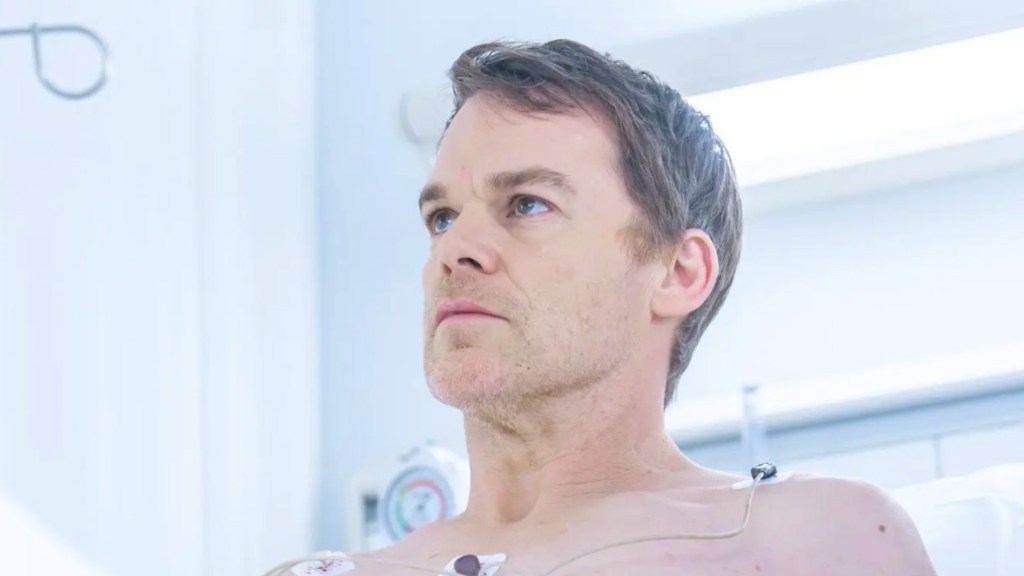
There’s a bit of a clunky start with some on-the-nose writing via dream sequences, but it quickly catches people up to speed on how Dexter got to this point in his life and establishes his mindset for what’s to come. Dexter: Resurrection also hand-waves some of the stuff at the end of New Blood, which should’ve resulted in Dexter being in handcuffs when he wakes up, but it doesn’t. The writers don’t ignore what happened, and they try to give a reason for why Dexter isn’t behind bars, but it definitely feels like a leap in logic in order to allow the show to exist. Still, the reintroduction of Batista ensures that there are some lingering consequences and that Dexter isn’t fully off the hook.
The stakes are high, but it’s clear that Dexter: Resurrection isn’t another attempt to end things. It’s a show that is resetting the board to be a launch pad for multiple seasons. It’s as much of a soft reboot as it is a continuation. Old series trademarks return, such as Dexter’s blood slides, the M99 tranquilizer, the ghost of his adoptive father Harry, and Dexter’s overall desire to be a vengeful serial killer. There’s no abstinence and no real desire to try to deny who he is. He is Dexter Morgan, a “moral” serial killer who once again wants to balance his vigilantism with being a father, but with no half measures this time.
The entirety of the Dexter franchise is a character study about what happens when a man who believes he’s void of emotion begins to feel, and the disaster that comes with trying to have his cake and eat it, too. Resurrection continues to explore these themes as he finds himself in new territory and questioning if he really can be a father to a child whom he ordered to shoot him. Everything Dexter has experienced has led him to this point, forcing him to reap what he has sown. Resurrection is about Dexter being literally and figuratively resurrected, seeing if he can take this second chance at life as an opportunity for good.
Although he’s still killing and putting himself in situations that actively endanger his well-being, he is also doing good. He’s not just avenging people; he is also saving those who are in harm’s way and preventing death, something that may suggest Dexter is being more proactive with his approach to things. Not only that, but he seems to be embracing life around him as something to experience rather than something that serves as a cover. He is taken in by a jolly immigrant ride-share driver named Blessing, who welcomes Dexter into his family with open arms, showing him family values and what it’s like to have a happy, healthy tribe.
Two Decades of Dexter
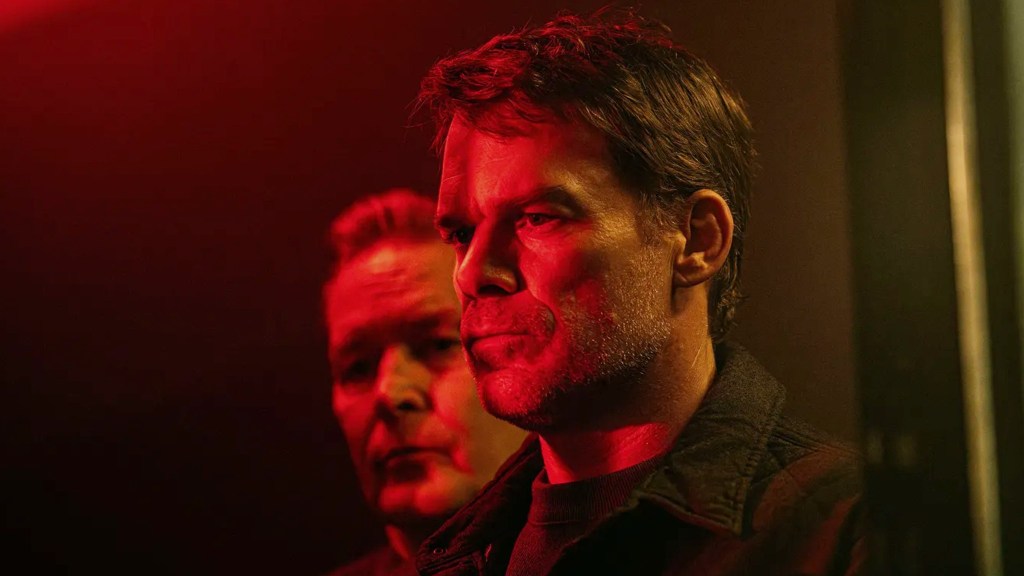
What makes Dexter: Resurrection so compelling is that this is a story that is only possible with nearly 20 years of history. A lot of TV shows that try to come back after a decade or more of being off the air often feel like nothing has changed. It’s as if their lives are static, and when the cameras come back on, the characters haven’t meaningfully evolved. Dexter: Resurrection acknowledges the passage of time and uses it as a storytelling obstacle for Dexter to overcome. We are following a guy’s life as it radically changes and following the consequences as they ripple across the decades. Even if he’s still killing, the circumstances and life he lives are totally different from what they were when this show began.
He faked his death a decade ago, he failed to abstain from serial killing, and his teenage son now has all kinds of issues from being abandoned by his father and witnessing the death of his mother. All of this history sub-textually deepens the drama and characters, but it is also a big part of the text itself as Dexter’s past continuously haunts him. There’s a great deal of tension in the fact that we saw Dexter have a close relationship with Batista in the original show, even to the point that Batista’s sister helped raise Harrison. Now, they’re somewhat at odds, and the audience is forced to reckon with the stress of what could happen if Batista finds out the truth about Dexter.
Of course, Dexter is also older, suggesting he’s not the apex predator he once was in Miami. He’s now in his 50s and recovering from a critical wound, making it harder for him to physically keep up with those he wants to take down. At multiple points, we see that Dexter is actively at a disadvantage because of his aging and wounded body, creating a bit more tension and vulnerability around his capabilities. Still, there are plenty of creative, new, intense jams for Dexter to cunningly get himself out of.
Like Father, Like Son
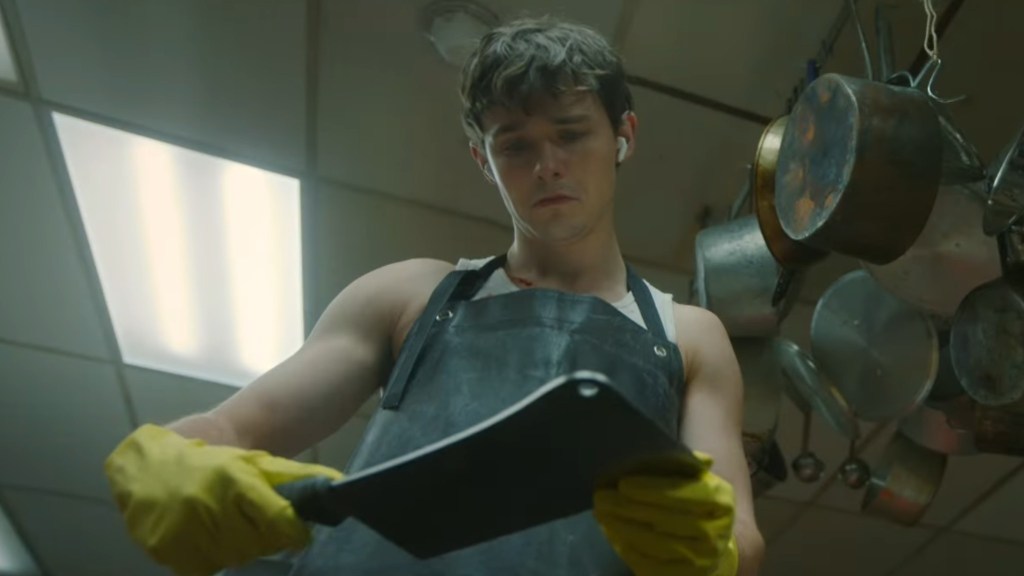
I’ve grown to really trust Michael C. Hall and the writers’ abilities to bring Dexter to life in an effective way, so I’m rarely concerned about how that character is handled. However, I had a lot of caution with regards to Harrison, Dexter’s son. On paper, he’s a very interesting character who, once again, is a great example of storytelling only possible over many years. We’ve followed this character since birth, and he has been deeply damaged by Dexter, eventually posing the question of whether he inherited his father’s murderous tendencies.
However, New Blood made him a bit too angsty. A lot of conversations between Harrison and Dexter typically led to an argument that ended with Harrison storming off with no resolution. Although it served the purpose of creating a rift between them, it was very repetitive and made Harrison feel like more of a plot device than a character, to an extent. In Resurrection, Harrison feels much more layered. He is on his own in New York City, trying to survive by working (and living) at a luxurious hotel. He generally seems to be happier, but still has PTSD from everything that happened with his dad, from helping Dexter kill a man and then shooting his dad himself.
Of course, this is a Dexter show, so there’s a crisis revolving around Harrison, but this time, his dad isn’t there to help him much. It forces Harrison into a position where he has to think on his feet and gives the writers time to platform him as his own strong, worthwhile character. Resurrection goes to great lengths to make Harrison a much more compelling character and one that you want to see just as much as Dexter, which is a major accomplishment. Jack Alcott brings more maturity to his performance and earns his keep in this sequel series.
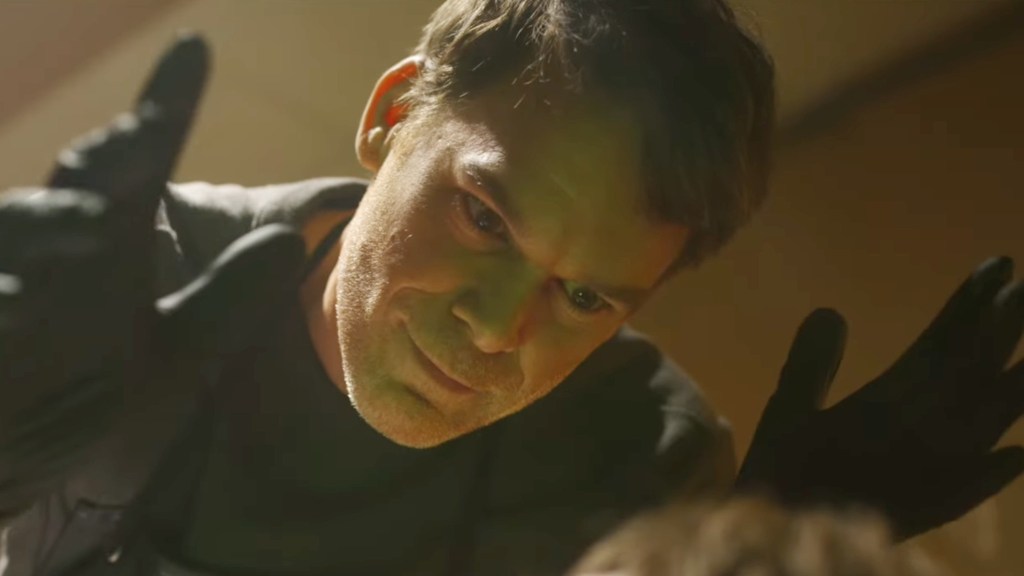
This show also packs a massive who’s who of TV legends in its cast, which includes guest stars Uma Thurman, Peter Dinklage, Krysten Ritter, and many more. It’s a treat to have so much talent chewing up the scenery and giving someone like Michael C. Hall a lot to work with in return. Resurrection provides Michael C. Hall the platform to give one of his best Dexter performances, thanks to not only all of the drama plaguing him, but also all of the fun he gets to have within kill rooms and action sequences.
Dexter: Resurrection is a show that clearly builds upon the things that New Blood was criticized for and actively feels like a return to form for Dexter himself. There’s a distinct blend of classic Dexter and the more cinematic and dramatic storytelling of the New Blood era. This is the Dexter we’ve wanted to see return since the original show ended in 2013, while also furthering the story. It’s filled with thrills, dark humor, a compelling and dramatic story, and another standout performance from Michael C. Hall. Dexter is back, but this time with added nuance, and I couldn’t be happier.
Rating: 4 out of 5
Dexter: Resurrection premieres on July 11th on Paramount+ with a special two-episode premiere.
The post Dexter: Resurrection Review: A Killer Time appeared first on ComicBook.com.
